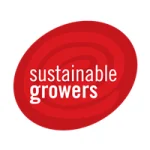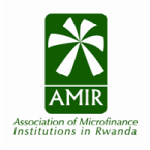The Deutsche Gesellschaft für Internationale Zusammenarbeit (GIZ) GmbH has been working in Rwanda for more than 40 years.Rwanda is a country with a turbulent and, at times, tragic history, and the impact of the 1994 genocide is still felt today. Nevertheless, Rwanda has achieved progress at a number of levels since 2000. Stability, security, steady economic growth and low corruption are some of the key successes. The country is also regarded as a pioneer in Africa in environmental protection, digitalisation and gender equality.Despite these encouraging developments, however, Rwanda is still a very poor country that continues to rely on international support. This support is in virtually all sectors and is coordinated by the Rwandan Government. As a reliable partner in an efficient task-sharing system, GIZ works in three priority areas on behalf of the German Government:
Expression of Interest (EOI)
Consultancy for AfCFTA Compliance and Capacity Building.
Reference Number:83466445
Publication date: 29.05.2024
Introduction
The Deutsche Gesellschaft für Internationale Zusammenarbeit (GIZ) GmbH is a federally owned international cooperation enterprise for sustainable development with worldwide operations. The GIZ Office in Kigali covers GIZ’s portfolio in Rwanda and Burundi. GIZ Rwanda/Burundi implements projects on behalf of the German Federal Ministry for Economic Cooperation and Development, the European Union and other commissioning authorities in the following priority areas: Sustainable Economic Development; Good Governance; Climate, Energy and Sustainable Urban Development; Digitalization and Digital Economy; and regional projects in the Great Lakes Region.
Context
The AfCFTA is the world’s largest free trade area bringing together the 55 countries of the African Union (AU) and eight (8) Regional Economic Communities (RECs). As part of its mandate, the AfCFTA is to eliminate trade barriers and boost intra-Africa trade and advance trade in value-added production across all service sectors of the African Economy. The AfCFTA will contribute to establishing regional value chains in Africa, enabling investment and job creation. The practical implementation of the AfCFTA has the potential to foster industrialization, job creation, and investment, thus enhancing the competitiveness of Africa in the medium to long term.
Through the Deutsche Gesellschaft für Internationale Zusammenarbeit (GIZ), Germany currently provides technical support to the African Union Commission (AUC), specifically to the Department of Economic Development, Trade, Tourism, Industry and Minerals (ETTIM) and the AfCFTA Secretariat, with its project “African Continental Free Trade Area (AfCFTA)”. The project’s main objective is to strengthen the framework conditions for intra-African trade. Besides the outstanding topics of AfCFTA Phase I on Trade in Goods and Trade in Services, phase II and III issues, such as Investment, competition policy, Intellectual Property Rights, and digital trade are supported. Furthermore, involvement of the private sector and civil society are supported.
To this end, the project pursues a multi-level approach on the continental level working with the AUC DTI and AfCFTA Secretariat, at the regional level supporting Regional Economic Communities (RECs), and the national level, specifically in the projects focus countries, like Rwanda.
Rationale
While the AfCFTA presents immense potential, its successful implementation requires concerted efforts to assist local firms in aligning their production processes and procedures with the agreement’s provisions. Many Rwandan businesses may lack the necessary knowledge, resources, and capacity to fully capitalize on the benefits of the AfCFTA and navigate its complex regulatory framework.
Rules of Origin: Understanding and implementing the rules of origin is crucial for Rwandan firms to qualify for preferential treatment under the AfCFTA. Given Rwanda’s aspirations to increase exports and expand its market presence, ensuring compliance with rules of origin is essential for leveraging tariff concessions and gaining a competitive edge in regional trade.
Access to AfCFTA Instruments: The availability and effective utilization of online tools and platforms, such as the e-tariff book portal, the electronic platform for monitoring and eliminating non-tariff barriers (NTBs), and the pan-African digital payment and settlement system, are instrumental in facilitating trade under the AfCFTA. Access to these resources will enable Rwandan firms to streamline their trade operations, reduce transaction costs, and overcome barriers to market entry.
Capacity Enhancement: By enhancing firms’ capacity to navigate AfCFTA requirements, Rwanda can empower its business community to seize opportunities for growth and expansion in the regional market. This includes providing training, technical assistance, and advisory services to equip firms with the knowledge and skills needed to comply with AfCFTA regulations, identify market opportunities, and maximize the benefits of the agreement.
Objectives and scope of the assignment.
The primary objective of this consultancy is to assist firms in:
- Understanding and implementing the rules of origin.
- Utilizing online access to essential AfCFTA instruments, including:
- The e-tariff book portal.
- The electronic platform for monitoring and eliminating non-tariff barriers (NTBs).
- The pan-African digital payment and settlement system.
- Other relevant instruments necessary for AfCFTA compliance
- Enhancing their capacity to navigate AfCFTA requirements and maximize benefits.
Specific tasks to be performed by the contractor.
The consultant(s) will undertake the following tasks:
- Assess firms’ current production processes and procedures.
- Provide tailored guidance and training on AfCFTA rules of origin and compliance requirements (The e-tariff book portal, the electronic platform for monitoring and eliminating non-tariff barriers (NTBs) and the pan-African digital payment and settlement system)
- Develop customized strategies for firms to leverage AfCFTA instruments effectively.
- Collaborate with relevant stakeholders, including government agencies, trade institutions, and industry experts, to ensure comprehensive support.
- Prepare progress reports and documentation of interventions conducted
The consultant(s) shall deliver the following:
- Assessment report detailing firms’ current production processes and areas for alignment with AfCFTA requirement.
- Training materials, including presentations, guides, and manuals on AfCFTA rules of origin and compliance mechanisms, which include The e-tariff book portal, the electronic platform for monitoring and eliminating non-tariff barriers (NTBs) and the pan-African digital payment and settlement system)
- Deliver a four days training session to 80 private sector companies; two groups of 40companies trained in 2days each. The selection of these companies will be determined in consultation with the main stakeholders beforehand. The attendance 80 companies must be mobilized by the consultant.
- Prepare a questionnaire (in close cooperation with GIZ) to assess the participants’ satisfaction with the conducted training workshops.
- Prepare a report (7-9 pages) including the used concept and outcome of the workshop and reflect on actionable recommendations for firms to optimize AfCFTA benefits and recommendations for future trainings based on the feedback of the participants and the outcome of the workshops.
Period of Assignment
The assignment is expected to be implemented within the period of 1st July 2024 – 30th October 2024. The total number of estimated days is 18working days. The assignment requires physical presence in Rwanda (Kigali) as the training will be done physically for two days.
These milestones, as laid out in the table below, are to be achieved within the contract period. These milestones are for both the assessments.
|
Milestones |
Days |
Deadline |
|
Start of contract |
1st July 2024 |
|
|
Kick off meeting with MINICOM, RRA RDB, PSF and other relevant stakeholders, presenting the developed inception report (approach and process). Submission of the final inception report after the meeting |
2 |
1st week of the contract |
|
Assess firms’ current production processes and procedures. |
4 |
2nd week & 3rd Week of the contract. |
|
Develop Training materials |
5 |
4th 5th & 6th Week of the contract |
|
Submit the finalized training for the key stakeholders (RRA & MINICOM) for approval. |
1 |
7th & 8th week of the contract |
|
Delivery of the Training & post Training Survey |
4 |
9th week of the contract |
|
Preparation of final report (progress reports and documentation of interventions conducted) |
1 |
10th Week of the contract |
|
Submission of final report |
1 |
10th Week of the contract |
|
Total Days |
18 working days |
Personnel concept
The Consultant firm will provide a lead consultant and 1 expert.
Lead Consultant qualifications
2.1.1 Education Qualification: Advanced degree (Master’s or equivalent) in international trade, economics, business administration, or a related field.
2.1.2 Language: Proficiency in English required; proficiency in French or Kinyarwanda preferred.
2.1.3 General Professional Experience: Minimum of 10 years of relevant professional experience in international trade, trade facilitation, or related fields.
2.1.4 Specific Professional Experience: Demonstrated expertise in rules of origin, trade compliance, and trade facilitation measures. Proven experience in designing and delivering training programs on trade-related topics. Familiarity with online trade platforms and digital payment systems.
2.1.5 Leadership/Management Experience: Experience leading multidisciplinary teams and managing complex projects. Strong organizational and coordination skills to ensure effective implementation of activities.
2.1.6 Regional Experience: Knowledge of the regional trade landscape in Africa, with specific understanding of Rwanda’s trade context and regional integration initiatives.
2.1.7 Development Cooperation (DC) Experience: experience working on development projects, preferably with international organizations, development agencies, or consulting firms. Understanding of development cooperation principles and practices, including results-based management and stakeholder engagement.
Expert Qualifications:
2.2.1 Education Qualification:
Bachelor’s degree in economics, business administration, international relations, or a related field.
2.2.2 Language: Proficiency in English required; proficiency in French or Kinyarwanda preferred.
2.2.3General Professional Experience: Minimum of 5 years of relevant professional experience in international trade, trade policy, or related fields.
2.2.4 Specific Professional Experience: Experience in providing technical assistance and advisory services to private sector firms on trade-related matters. Familiarity with AfCFTA instruments and online trade platforms.
2.2.5 Leadership/Management Experience: Ability to work independently and collaboratively within a team environment. Strong communication and interpersonal skills to engage with diverse stakeholders.
2.2.6 Regional Experience: Understanding of regional trade dynamics in Africa and knowledge of Rwanda’s trade environment.
2.2.7 Development Cooperation (DC) Experience: Familiarity with development cooperation projects and processes, including monitoring and evaluation. Ability to contribute to the design and implementation of capacity-building activities in alignment with development objectives.
Costing requirements
Per-diem and overnight accommodation allowances are reimbursed as a lump sum up to the maximum amounts permissible under tax law for each country as set out in the country table in the circular from the German Federal Ministry of Finance on travel expense remuneration (download at https://www.bundesfinanzministerium.de).
All travel activities must be agreed in advance with the staff member responsible for the project.
Sustainability aspects for travel
GIZ would like to reduce greenhouse gas emissions (CO2 emissions) caused by travel. When preparing your tender, please incorporate options for reducing emissions, such as selecting the lowest-emission booking class (economy) and using means of transport, airlines and flight routes with a higher CO2 efficiency. For short distances, travel by train (second class) or e-mobility should be the preferred option.
If they cannot be avoided, CO2 emissions caused by air travel should be offset. GIZ specifies a budget for this, through which the carbon offsets can be settled against evidence.
The market for carbon credits is made up of a large number of providers, each with different claims as to their climate impact. The Development and Climate Alliance has published a list of standards. GIZ recommends using the standards specified there.
|
Fee days |
Number of experts |
Expert days |
Comments |
|
Lead consultant |
1 |
10 |
|
|
Expert |
1 |
8 |
Top of Form
Calculate your financial bid exactly in line with the quantitative requirements of the specification of inputs above. There is no contractual right to use up the full days/travel or workshops or budgets. The number of days/travel/workshops and the budgets will be contractually agreed as maximum amounts. The regulations on pricing are contained in the price schedule.
Technical-methodological concept.
Strategy (1.1): The contractor is required to consider the tasks to be performed with reference to the objectives of the services. Following this, the contractor presents and justifies the explicit strategy with which it intends to provide the services for which it is responsible (Tasks to be performed).
The contractor is required to present the actors relevant for the services for which it is responsible and describe the cooperation (1.2) with them.
The tenderer is required to present and explain its approach to steering the measures with the project partners (1.3.1) and its contribution to the results-based monitoring system (1.3.2).
The contractor is required to describe the key processes for the services for which it is responsible and create an operational plan or schedule (1.4.1) that describes how the services (Tasks to be performed by the contractor) are to be provided. In particular, the tenderer is required to describe the necessary work steps and, if applicable, take account of the milestones and contributions of other actors (partner contributions) (1.4.2).
The tenderer is required to describe its contribution to knowledge management for the partner (1.5.1) and GIZ and to promote scaling-up effects (1.5.2) under learning and innovation.
E. Project management of the contractor (1.6)
The tenderer is required to explain its approach for coordination with the GIZ project.
Inputs of GIZ
GIZ will assume the costs for the venue for the four days training for participants and the catering during the Training.
Annex / Attachments
Submission of offer: The Expression of Interest should contain the following:
Technical Proposal:
- A cover letter expressing your interest in this assignment
- Technical proposal with a brief description of why you would be considered as the most suitable for the assignment, relevant expertise, and a detailed, clear methodology, your approach to complete the assignment, template attached.
- Company registration certificate (RDB)
- VAT-Registration Certificate
- Latest tax clearance certificate
- Proof of successful completion of related assignments.
Financial Proposal: The price per service category must contain all relevant costs supported by a breakdown of each cost. The costs must be in RWF and VAT
Please submit electronically your EoI (technical & Financial offer) in 2 separated emails and should be in PDF files to this email ONLY: RW_Quotation@giz.de until latest 12th June 2024
Please you must write on each email subject this sentence:
83466445 Technical/financial offer, without this sentence, your offer may not be considered
Hard copies are not allowed this time
GIZ reserves all rights
Attachment




